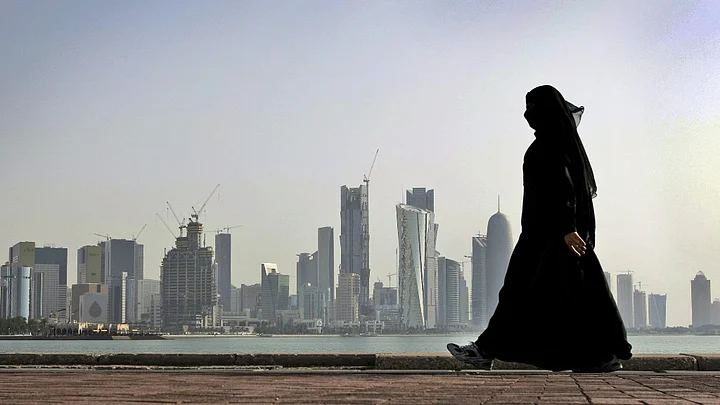The decision by four Arab nations to cut ties with Qatar marks the culmination of years of tension among a historically tight-knit alliance of energy-rich Gulf Arab states that share borders, a common heritage and a strong alliance with Washington.
The move reflects longstanding anger at Qatar’s support for Islamist groups that are outlawed by other Arab nations, as well as the increasingly bitter rivalry between Saudi Arabia and Iran.
How severe the impact will be on Qatar, which hosts the region’s main US military base used to launch strikes on the ISIS group, depends on what further measures will be taken.
Analysts say President Donald Trump's recent visit to Saudi Arabia emboldened hawkish Saudi royals by positioning America squarely with Sunni Arab countries against Iran.
Here’s a look at the issues:
Why is the little peninsula nation of Qatar important?
Qatar is home to the forward headquarters of the US military’s Central Command. Its al-Udeid Air Base serves as a launching pad for coalition jets bombing ISIS sites in Iraq and Syria. The country has only around 2,70,000 citizens, but is the world’s biggest producer of liquefied natural gas, sharing a vast underwater field with Iran.
Qatar also plays a role in negotiating with groups that many governments keep distance from. It secured the release of hostages in Syria’s civil war, including some held by an al Qaeda affiliate. Qatar has also hosted talks between the Afghan government and the Taliban.
Why is Qatar at odds with the Arab world’s most powerful countries?
Tensions between Qatar and Saudi Arabia – a Middle East heavyweight – bubbled to the surface two weeks ago when Qatar said its state-run news agency and its Twitter account were hacked to publish a fake story claiming the emir, Sheikh Tamim bin Hamad Al Thani, had called Iran “a regional and Islamic power that cannot be ignored”.
State-linked media in the region ignored Qatar’s denial. State-linked Saudi media launched an aggressive campaign accusing Qatar of supporting terrorist groups like al Qaeda and the ISIS, destabilising the region and stabbing its allies in the back.
The UAE had long been angered by Qatar’s support for Islamists in the Gulf and in Libya, and Saudi Arabia and Egypt view the Muslim Brotherhood as a threat. Saudi Arabia accuses Qatar of supporting “Iranian-backed terrorist groups” in its Qatif province and in neighboring Bahrain – and of backing the Yemeni rebels its coalition is fighting.
What are the broader consequences?
There could be long-term economic consequences for Qatar, which would affect the millions of migrant workers and expatriates living there. Most of Qatar’s food comes from Saudi Arabia across the peninsular nation’s only land border, which the Saudis have now closed.
Political risk consultancy Eurasia Group says the “risk of a coup is significant.” A change in leadership could raise questions about the future of the US base and potentially deprive Hamas of its main benefactor.
US Secretary of State Rex Tillerson has called on the parties to sit down and address their differences, though he does not believe the crisis will affect the war against the ISIS.
Might Qatar give in?
Qatar denies it supports terrorist groups in Syria or elsewhere, despite aggressive efforts to back Sunni rebel groups fighting to oust the Syrian government. The issue appears to be funding that goes through the country to more mainstream groups like the Brotherhood, and in principle that could be addressed.
But for now Qatar’s ruler appears unfazed. Qatari media published a cartoon mocking Saudi King Salman for spreading “fake news”. Last week, the emir called Iranian President Hasan Rouhani to congratulate him on his re-election – a clear and public rebuttal of Saudi Arabia’s efforts to force Qatar to fall in line.
Qatar’s emir, believed to be just 37 years old, could retaliate by withdrawing from the six-nation Gulf Cooperation Council and redraw alliances to snub Saudi Arabia’s 31-year-old Deputy Crown Prince Mohammed bin Salman and Abu Dhabi’s Crown Prince Mohammed bin Zayed, who are believed to be the two main figures orchestrating the standoff.
(This article has been published in an arrangement with AP. The piece has been edited for length.)
(At The Quint, we question everything. Play an active role in shaping our journalism by becoming a member today.)
